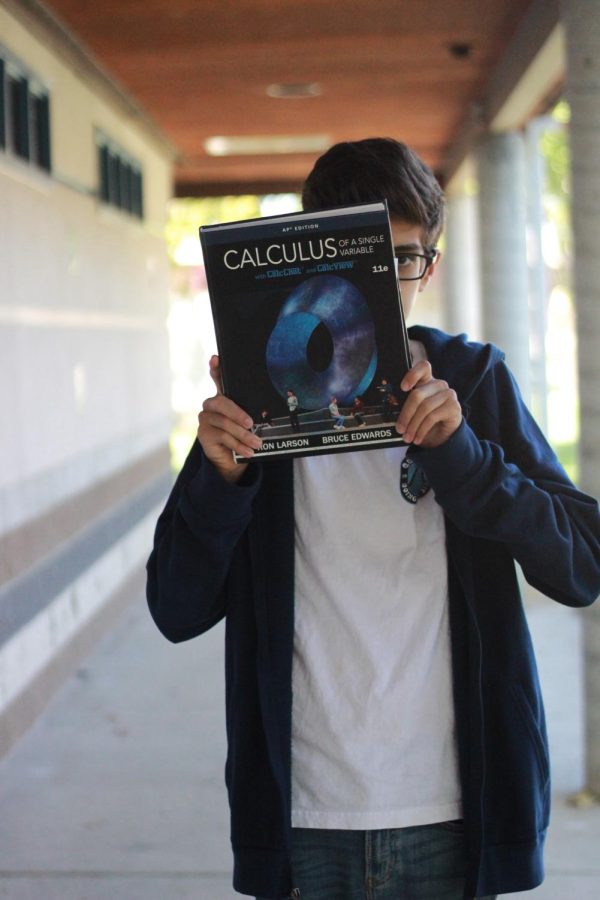Beyond figures and formulas
Mathematics doesn’t come easily, even for an underclassman in AP Calculus
November 8, 2022
For Sophomore Rishabh Bhutani, there is a lot more to math than the classes one takes and grades one earns on the tests; for him, math is a way of thinking.
“Math is kind of a creative subject,” said Bhutani. “It comes down to logical thinking and being able to think on the spot and being able to come up with ideas.” The skills developed in math can be applied to other subjects too, and not just those that involve numbers. Bhutani said he felt he improved as an English student once he began to apply problem solving and reasoning skills to his writing. Grasping those concepts can prove difficult for those who have not been exposed to them, he said, blaming the way lower level math is taught in schools.
“You kind of just keep doing stuff you’re told to do and you’re not really told to come up with stuff yourself or trying to think of something in a way you haven’t thought of before,” he said. It was only when he reached calculus that he began to genuinely enjoy math. “Prior to that, it was kind of just, oh, I’m kind of good at this so I guess I’ll keep doing it.” Now, he thinks of math as his personal hobby.
Bhutani encourages even those who don’t yet like math to take a semester of calculus at some point in their education. “It doesn’t matter if you take it sophomore, junior or senior year, or if you take it in your fifth year of college. It’s acquired knowledge over time,” he said. “It shouldn’t just be like, oh, I took this class and I got an A in it, it should really just be what you get from the class.” Different people learn math at different paces; Bhutani doesn’t even consider what he is doing to be fundamentally different from taking Integrated Math II in Freshman year.
“It doesn’t matter if you take it sophomore, junior or senior year, or if you take it in your fifth year of college. It’s acquired knowledge over time …”
Bhutani doesn’t believe accelerating in math should be forced. He disagrees with parents putting pressure on their students to skip to higher levels of math for the sake of it. “It wasn’t like a thing like, oh, I want to take calculus freshman year. That wasn’t my motive.” He said he personally chose to accelerate because he wanted to get exposed to higher math concepts at a faster pace.
Beyond the linear track of high school math, there are several branches of higher math. “If you look at research in math, for example, your entire research field is one very, very, very specific topic in math that only one or two people in the whole world could understand what you’re doing.” He has already begun to take college courses online to get an introduction into some of those branches, one of which is abstract algebra. “It’s not algebra you learn in school. It’s called abstract algebra and it’s called that for a reason. It’s like a logical foundational aspect of the algebra you learn in school.”
For Bhutani, all of this started in the fifth grade, when his grandfather began to teach him math at a faster pace. “He would go on walks with me and he would explain concepts to me,” he said. “I was quite lucky to have him because he taught me a lot of what I know.”
















